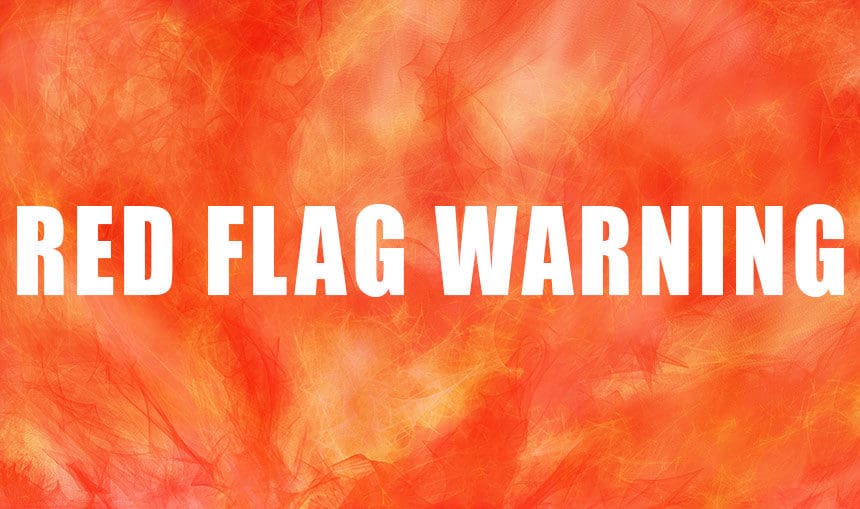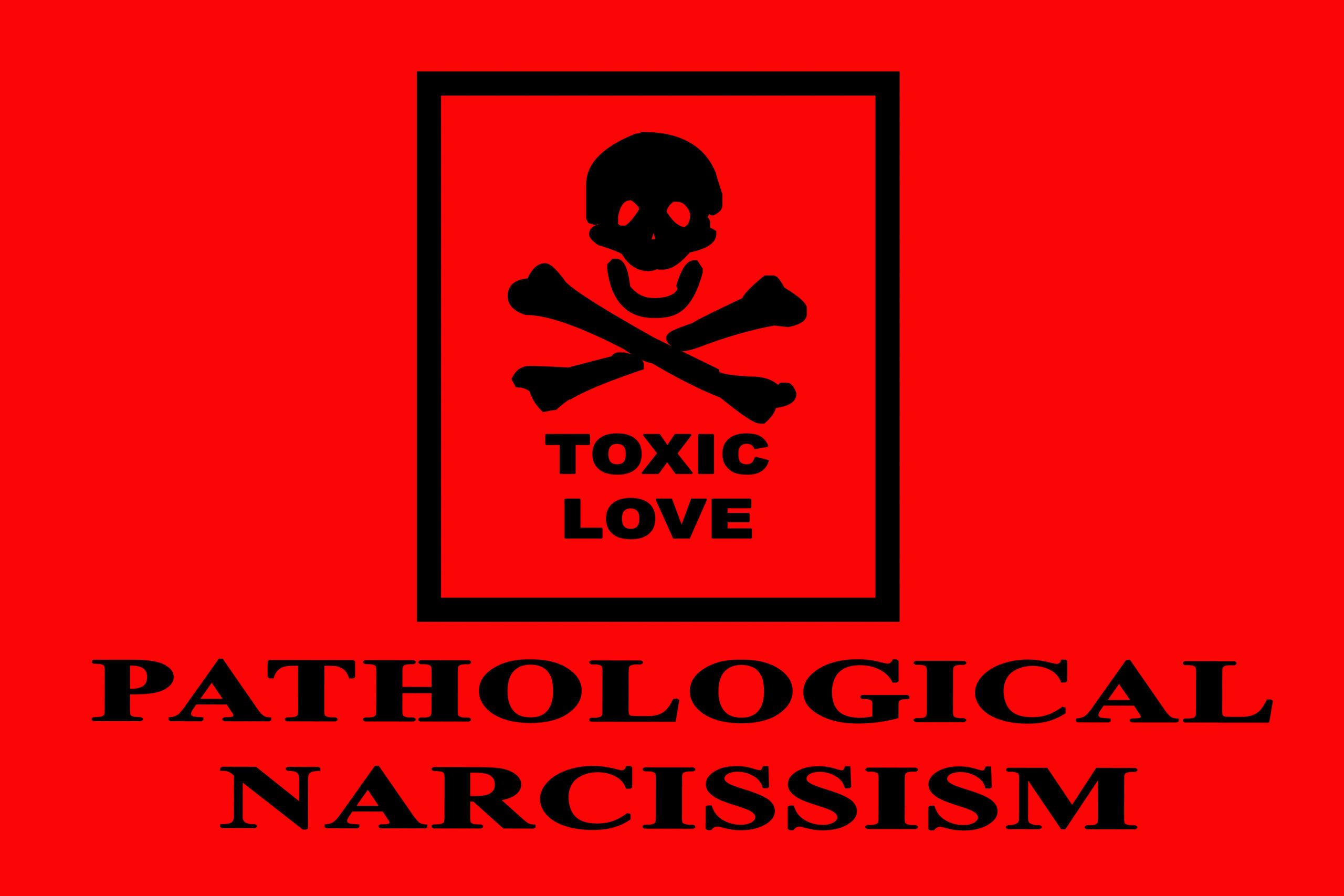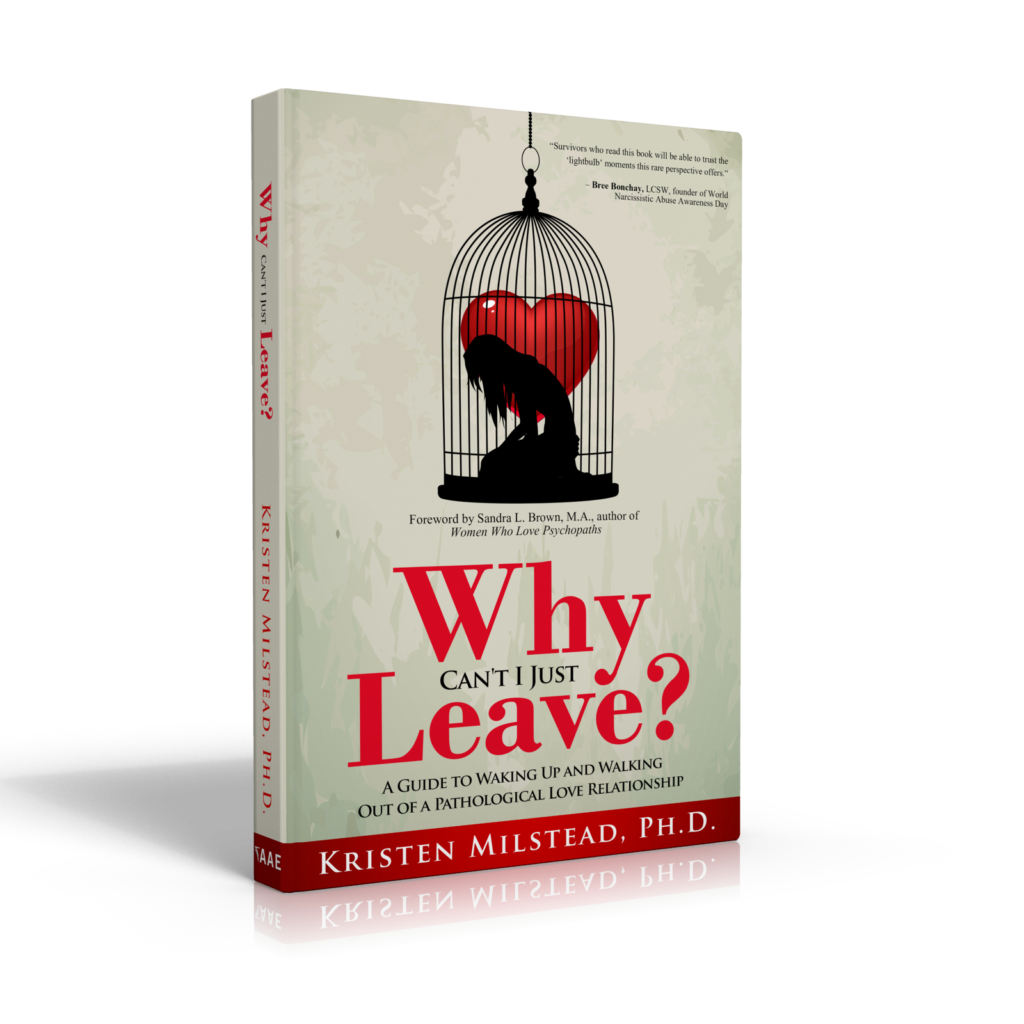After being in a relationship with a narcissist, at least one thing becomes crystal clear: we never want to give another one the chance to do that kind of damage again. It’s important to learn and recognize the warning signs of narcissism so that we can keep ourselves safe.
Sometimes, after leaving relationships with narcissists, our judgment may feel off and we end up at extremes.
Either we can up right back in another one or we begin to see narcissists everywhere and withdraw into ourselves, afraid to interact with the world.
It’s crucial, therefore, not to get distracted by what we may think of as the “obvious” signs of narcissism that may make us feel triggered and keep us from living our lives.
Instead, we can learn to recognize the red flags that someone is not just narcissistic but has an unhealthy level of narcissism that may eventually result in psychological abuse.
First, before we get to the “red flags,” let’s talk about why we might be tempted to ignore the warning signs, so if we catch ourselves doing it, we can try to stop and take a deeper look.
Why Do We Write Off Warning Signs of Narcissism?
1. Narcissists are good at distraction.
Narcissists are known for the “love-bombing” right up front.
We tend to think of this as something that happens in romantic relationships, but similar behaviors can happen in any situation– work settings, first dates, or social settings.
For example, even in a situation where we are meeting a friend’s new love interest, a narcissist may try to charm us and if we aren’t careful. This is where it is very easy to get tripped up.
Not all compliments are suspect, however, and so on edge are we about what happened to us, that one or two compliments might cause us to pause and wonder if what we are witnessing is a sign that someone is a narcissist.
Yet once a person begins to flood us with their attention, we may become so caught up in it and distracted that we may forget to question the sincerity of the words or don’t want to. More on this below.
2. We don’t think of their strange behavior as a warning.
We aren’t used to having to think of behaviors that may seem benign or positive as “warnings.” Even if a behavior seems a little eccentric, if it isn’t blatantly harmful or antisocial, we are likely to convince ourselves it’s no big deal.
We’ve been groomed to be tolerant and accepting of the behavior of others, as long as no one is really hurting anyone else. We may even have a voice in our heads telling us not to be too sensitive or paranoid.
3. We are biased to believe it will be obvious if someone has bad intentions.
Again, we know what rude and arrogant people are like, and we’ve all encountered jerks and know we’d prefer to stay away from them. We have our radar out for danger– the kind where predators might mug us on the street or jump out from behind bushes as we walk across a parking lot and attack us.
But what about people who hide the bad things they are capable of? In general, no one has ever taught us how to watch out for predators in social situations– or even that they exist.
4. It’s normal to resolve any doubts we have in their favor.
When their behavior doesn’t add up, we are likely going to give them the benefit of the doubt. “Well, I know I’ve made mistakes,” we may tell ourselves. Or, “Mary thinks he’s a good guy, so he must be okay.”
There isn’t a general social awareness or acceptance that social predatory behavior is real. We end up with a voice in our heads telling us we are imagining things or even miss the signs as potentially dangerous at all on a conscious level.
Therefore, we can often end up just giving the benefit of the doubt to the person and assuming they are just like us and have no ill intentions– because most people we meet won’t have any so that’s our default setting.

Early Warning Signs of Narcissism
These are things about the person that may stand out to you if they occurred, however, if they did, unless you were aware ahead of time that they could be warning signs of someone capable of narcissistic abuse, they would likely fly under the radar.
They are benign enough to be written off as harmless or small violations of social norms that seem unimportant when taken individually.
Being aware of the four biases above that explain why you might be tempted to write them off as signs that you are interacting with a narcissist may help keep you from doing so.
1. Unnatural Compliments
Their compliments are over-the-top.
This flattery should be very noticeable, almost to the point of being silly and unbelievable. There’s nothing wrong with deserved compliments and some people are naturally very giving in their praise. Yet pay attention to the praise that they give. Is it specific to the person and or the situation?
- Probably okay:
- They compliment the clothing someone is wearing upon first seeing them.
- Someone has just performed musically or using some other talent, and they compliment the performance.
- They flirt with a person by complimenting something about them during the course of a conversation to let them know they are attracted to them.
- Caution:
- The compliments sound like a combination of excessive and empty. They may go on and on about how wonderful someone is, and yet it sounds as if they could be talking about anyone.
- They may do it multiple times and frequently do it to multiple people and where there is an audience so others can see (depending on if they are targeting someone in particular or if they are targeting a group)
WHY THEY DO IT: They are ingratiating themselves with a specific person or to a crowd through glibness and flattery. They want others to have a positive impression of them.
2. Unnatural Conversations
In fact, they often aren’t conversations. Either you’re doing all the talking, or they are, but it’s not really a dialogue.
They may talk almost exclusively about themselves and you may be asked nothing about yourself or be given much of a chance to say anything. He or she may seem uninterested when you do say anything. Or you may be asked question after question as if you’re on a job interview.
This may sound contradictory to say that they talk too much or talk too little– but the idea is that the conversation doesn’t feel natural and you may notice a pattern when talking to them more than once that it’s either all of one or all of the other or it may shift between the two, but you never seem to have a free-flowing dialogue with them.
WHY THEY DO IT: You’re either being fed the narrative the narcissist wants you to hear about who they are (and the narcissist also likes to talk and may have forgotten it was supposed to be a two-way conversation). Or you’re being pumped for information that he or she can use at some point.
3. You Feel Sorry for Them
They make sympathy plays throughout the course of conversation by mentioning horrible things that have happened to them. They will often find a way to add it to the conversation as part of the script if they are the ones talking or as a way to commiserate with you on something if you have been the one talking.
The most important thing to notice, however, is how you feel. Do you feel more sympathetic or trusting toward them?
WHY THEY DO IT: You’re less likely to see them as threatening if you pity them. It allows them at a later time to get away with all kinds of abusive behavior and blame it on the bad things that have happened to them.
4. Secrets
They may also tell you “secrets” to make you feel like you’re special.
During the course of these conversations, they may divulge things to you and make sure you know it’s “confidential.” You may start to feel as if something about what they’re telling you doesn’t quite ring true, however.
Or perhaps they tell you more than once because they’ve forgotten they’ve already told you. If it’s such a secret, how could they have forgotten they told you– unless they lost track of who they told the “secret” to?
WHY THEY DO IT: If you feel as if they have entrusted you with a secret, you are more likely to feel trusting toward them and drop your guard.
5. Lies
If this happens, it’s likely to be puzzling because many of the things they lie about can be ridiculous: something benign someone said; where they were; who they were with; what they were wearing on a different night.
And you just so happened to have talked to the person whose words they quoted and the person innocently told you their own version of the story. Or you happened to see picture evidence that the person was, in fact, not where they said they were or who they said they were with or even wearing what they said they were wearing.
You can’t come up with a good reason why someone would lie about such silly things and don’t give it too much thought.
WHY THEY DO IT: Depending on the lie, there could be multiple reasons, ranging from sowing seeds of mistrust between two people to making themselves look better to making you feel certain emotions that can provide them with narcissistic supply, but the ultimate purpose is to gain control over whomever they are lying to by withholding the truth.
Again, if you have believed in the positive image of the narcissist that he or she has constructed, you will think these lies are innocent and it would seem silly and petty anyway to point them out. Right? See where this is going?
* * * * *
So now we have a picture of someone who manufactures a positive impression of themselves and causes you to pity them, while at the same time making you feel special through some powerful psychological techniques.
These are all powerful indicators that something is off, but you should also look for conversational signs such as small lies.
It is possible when you interact with someone that something may set you off almost immediately. What is more likely to happen, however, is that you may need to see a person a few times, or in a few contexts, or see them interact with multiple people before their behavior may begin to register and you may begin to take notice.
But what happens if you don’t?

Later Warning Signs of a Narcissist
So if you’ve made it this far, you didn’t catch the early warning signs. The things that were harmless didn’t even register and the things that sort of seemed like signs of a narcissist you ignored because they didn’t seem to mean anything.
Now, in this later stage, the warning signs will be harder to ignore, but because of the earlier groundwork laid by the narcissist as you have gotten to know him or her, you will want to ignore them because “they’re so nice.” You’re going to think you’re wrong as you pick these signs up.
Do not ignore them. The realization is hitting you that something is not right, but it is in your power to listen to it.
All you have to do now is be aware that it’s happening.
1. Words and actions don’t match
They’re charming, right? They love flattering others and everyone is always going on about how nice of a guy or gal they are.
But once they’ve set that impression, you may catch them being contemptuous about the very people they were just flattering. You may see them treating waiters and waitresses or people they don’t believe can offer them anything with disdain.
You’re seeing the additional layer beneath the impression they want you to see.
2. Personality characteristics don’t add up
3. Lack of respect for your wishes
4. Hidden jabs
Perhaps they are passed off as “jokes” or back-handed compliments, however, suddenly you will start to hear things that don’t coincide with the positive things that the narcissist once said about you.
5. Your gut
You may have picked up on something subconsciously, and have an instinct that something is off, but your conscious mind has not processed it. The narcissist may be trying to overpower your instincts and try to get you to ignore them. If you have this gut feeling, however, you should probably not ignore it–especially if you have noticed any of these other warning signs as well.
Your gut feeling may, in fact, be your most important warning sign of all.






7 Comments
Matthew
This is a very good “key” for helping people to recognize what they may be becoming tangled up in .I experienced most of these red flags .
At the time I had no clue that people like this existed. I was so naive! I am not very adept at navigating the web,and it never occurred to me to Google such things.I am grateful to you and all of the other people who have made an effort to expose this “communicable disease “.
You are providing much needed validation.
Losing ones sense of self is such a confusing,,destructive,and demoralizing experience that validation is priceless!
Thank you!
Gail Enbach
Hi Kirsten and Folks, I appreciate your site here very much. I have been safe and sound zero contact a year plus. There was one thing that still bothered me and couldn’t resolve. I found it today in your article that listed GLEE! I’ve only be able to say I saw a ‘giddiness’ in them that shook me to the core. There was all forms of abuse but when I saw this ‘giddy’ thing and he left for the day, I called my best friend and started packing. That had me bolt! I would like to hear more of your take on that GLEE thing. Could you please tell me how to watch the video you mention in the post?
Kristen Milstead
Hi Karen: I’m glad you have found this information to be so helpful. I appreciate the well-wishes. The blog has been very helpful, as has been communicating with those who are reading it. Thank you for reading and taking the time to leave a comment. I wish you well in your recovery! -Kristen
Karen
Thanks Kristen for the helpful tips. It’s s bit too late for the devulging of information tip – but the minimising contact if not at all is great. And all the information was helpful for when we find in contact with future narcisscists – seeing there are so many around.
I have even passed this information to my daughter who has already identified 2 narcissists in her life. One she has already got rid of. It has helped her mental position and understanding so much better now. So once again thank you for your knowledge on this topic. It’s convenient that narcissists are so predictable – as so many of us can see the pattern and protect ourselves and our loved ones in future.
You are providing a great service!
I hope your healing is going well. As your blog should help you become a better and stronger person mentally.
Karen
Thanks Kristen for the helpful tips. It’s s bit too late for the devulging of information tip – but the minimising contact if not at all is great. And all the information was helpful for when we find in contact with future narcisscists – seeing there are so many around.
I have even passed this information to my daughter who has already identified 2 narcissists in her life. One she has already got rid of. It has helped her mental position and understanding so much better now. So once again thank you for your knowledge on this topic. It’s convenient that narcissists are so predictable – as so many of us can see the pattern and protect ourselves and our loved ones in future.
You are providing a great service!
I hope your healing is going well. As your blog should help you become a better and stronger person mentally.
Kristen Milstead
Hi Karen: I’m glad you have found this information to be so helpful. I appreciate the well-wishes. The blog has been very helpful, as has been communicating with those who are reading it. Thank you for reading and taking the time to leave a comment. I wish you well in your recovery! -Kristen
Gail Enbach
Hi Kirsten and Folks, I appreciate your site here very much. I have been safe and sound zero contact a year plus. There was one thing that still bothered me and couldn’t resolve. I found it today in your article that listed GLEE! I’ve only be able to say I saw a ‘giddiness’ in them that shook me to the core. There was all forms of abuse but when I saw this ‘giddy’ thing and he left for the day, I called my best friend and started packing. That had me bolt! I would like to hear more of your take on that GLEE thing. Could you please tell me how to watch the video you mention in the post?